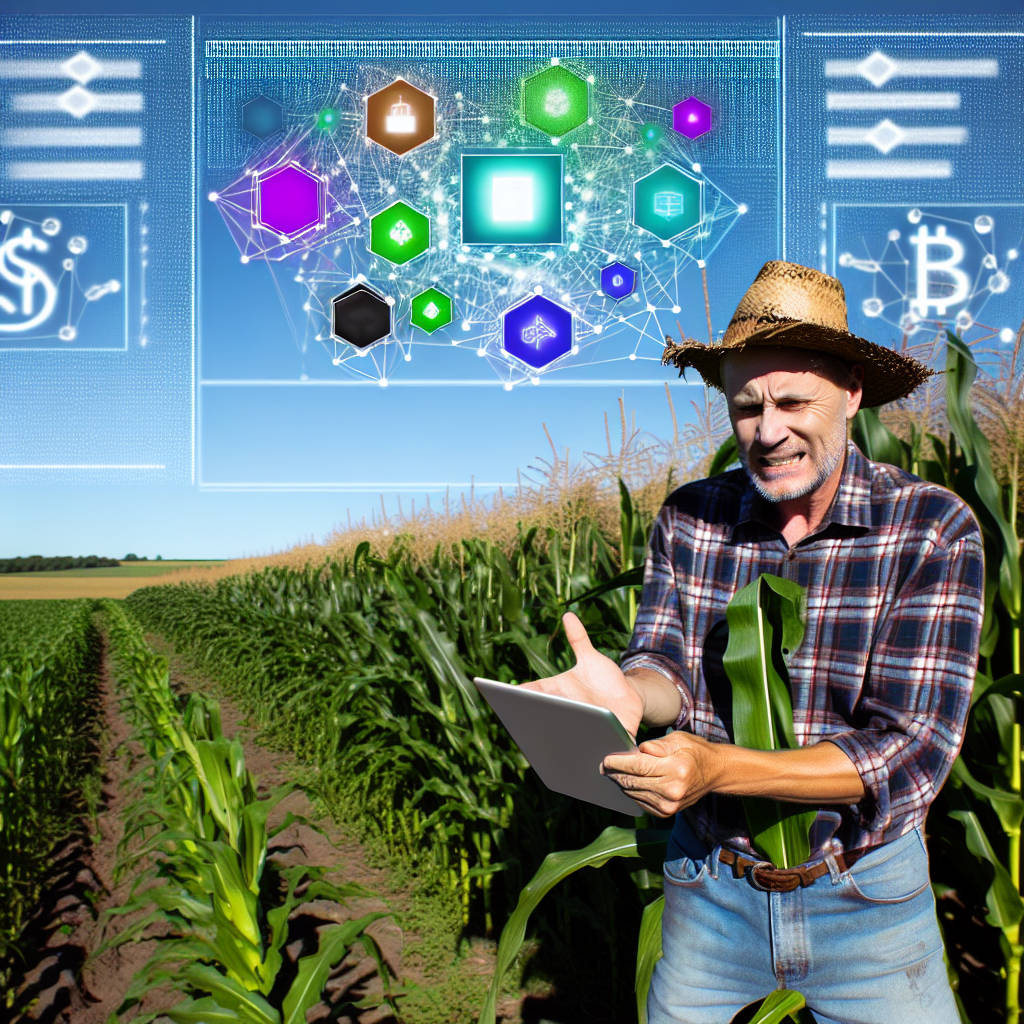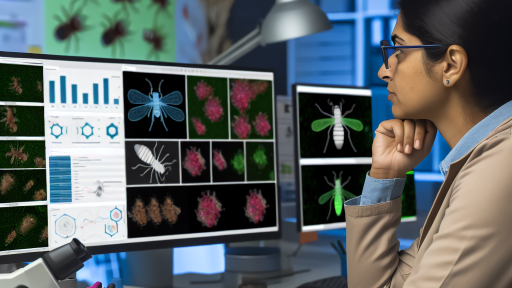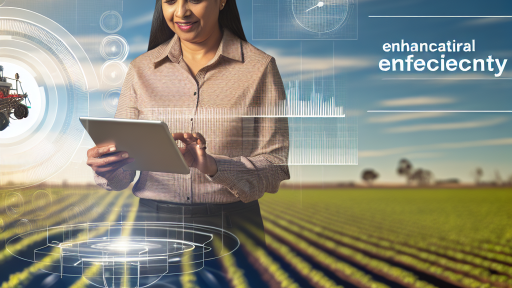Introduction to Blockchain Technology
Blockchain technology revolutionizes how we manage and record transactions.
At its core, it is a decentralized digital ledger.
This ledger securely records transactions across many computers.
As a result, it prevents any single party from altering the records alone.
Each transaction in the blockchain is grouped into a block.
Once filled, this block is linked to the previous one.
This chain of blocks forms the complete history of all transactions.
Transparency is a key advantage of this technology.
Each participant can view the entire chain at any time.
Furthermore, the technology enhances security through cryptographic techniques.
These methods create a unique digital signature for each transaction.
As a result, it becomes exceedingly difficult to tamper with records.
This characteristic encourages trust among users.
Blockchain has applications beyond currencies like Bitcoin.
It can optimize supply chains, including those in farming.
Transform Your Agribusiness
Unlock your farm's potential with expert advice tailored to your needs. Get actionable steps that drive real results.
Get StartedIn farming, blockchain can transparently track products from farm to table.
Additionally, it helps verify the authenticity and quality of goods.
This innovation has potential benefits for farmers and consumers alike.
Overall, blockchain technology represents a significant shift in various industries.
Its impact on agricultural supply chains could be especially transformative.
Current Challenges in Farming Supply Chains
Transparency Issues
Many farming supply chains lack transparency.
This lack hinders effective communication among stakeholders.
Consequently, consumers cannot trace the origin of their food.
Moreover, producers often do not know the end products’ journey.
As a result, trust diminishes in the food sector.
Additionally, discrepancies in data can lead to fraud.
This fraud ultimately impacts food safety and quality.
Traceability Challenges
Traceability refers to tracking products throughout the supply chain.
Many farmers struggle with implementing effective traceability measures.
Without proper systems, recalling unsafe food becomes complex.
Consumers demand to know where their food comes from.
However, current systems often fail to provide adequate information.
This situation poses a risk to public health and safety.
Impact of Lack of Data Integrity
Data integrity remains a critical concern in farming supply chains.
Poor data management can result in significant losses.
It creates confusion regarding supply chain operations.
Farmers and distributors often cannot rely on inaccurate data.
Hence, the overall efficiency of food production suffers.
Regulatory Compliance Difficulties
Regulations are becoming increasingly stringent in agriculture.
Showcase Your Farming Business
Publish your professional farming services profile on our blog for a one-time fee of $200 and reach a dedicated audience of farmers and agribusiness owners.
Publish Your ProfileMany farmers struggle to meet these compliance requirements.
This issue complicates the supply chain process.
As a result, delays and increased costs arise.
Compliance failures can lead to legal issues and fines.
Ultimately, these challenges impact the farmers’ bottom line.
How Blockchain Technology Provides Solutions for Supply Chain Transparency
Enhancing Traceability
Blockchain allows farmers to track produce from the field to the consumer.
Every transaction appears on a decentralized ledger.
This ledger ensures a secure and immutable record of each step.
As a result, consumers gain confidence in the sourced products.
Furthermore, companies can verify claims of sustainability and freshness easily.
Building Trust Among Stakeholders
Transparency builds trust among farmers, suppliers, and buyers.
The blockchain system creates a reliable environment for all parties involved.
Shareholders can see real-time data on product movement.
This visibility reduces the chances of fraud and misrepresentation.
In turn, it fosters stronger relationships in the supply chain.
Improving Efficiency
Blockchain technology streamlines processes in the supply chain.
Smart contracts automate transactions based on specific conditions.
Consequently, this reduces delays and administrative overhead.
Faster transactions lead to quicker deliveries to consumers.
Moreover, it minimizes paperwork and associated errors.
Facilitating Regulatory Compliance
Regulatory bodies benefit from blockchain’s transparency.
Producers can easily demonstrate compliance with safety standards.
This documentation simplifies the auditing process significantly.
As a result, authorities can ensure better food safety measures.
In addition, consumers enjoy an increased sense of security.
Explore Further: Automated Irrigation Systems Ensuring Water Efficiency in Farming
Case Studies: Successful Implementations of Blockchain in Agriculture
Enhancing Supply Chain Transparency
FarmConnect implemented blockchain technology to boost transparency in agricultural supply chains.
The company partnered with local farmers to track produce from farm to table.
This initiative improved consumer trust and provided real-time data on product origins.
As a result, FarmConnect experienced a significant increase in sales.
Reducing Food Fraud
Evergreen Farms utilized blockchain to combat food fraud effectively.
By recording every transaction on a decentralized ledger, they ensured authenticity.
This strategy reduced instances of mislabeling by 30% within the first year.
Moreover, customers now receive verified information about their food sources.
Streamlining Payments and Transactions
AgriPay introduced a blockchain-based payment system for farmers and suppliers.
This system enabled instant transactions, reducing delays in payments.
Consequently, farmers improved their cash flow and operational efficiency.
AgriPay’s approach eliminated the need for intermediaries, cutting costs significantly.
Improving Traceability for Organic Products
PureHarvest employed blockchain to enhance traceability for organic produce.
The company provides certificates of authenticity that are easily accessible to consumers.
Showcase Your Farming Business
Publish your professional farming services profile on our blog for a one-time fee of $200 and reach a dedicated audience of farmers and agribusiness owners.
Publish Your ProfileWith this system, customers can trace the entire journey of their organic products.
This transparency has led to a notable rise in consumer loyalty and sales.
Facilitating Crop Insurance Claims
CropSafe developed a blockchain platform to streamline insurance claims for farmers.
This system allows for immediate verification of claims through automated checks.
Farmers benefit from faster payouts during emergencies, improving their resilience.
Additionally, the number of fraudulent claims has drastically reduced.
Uncover the Details: Biotechnology Tools Every Modern Farmer Should Know
Smart Contracts: Automating Transactions in Farming Supply Chains
Overview of Smart Contracts
Smart contracts are self-executing contracts with terms directly written into code.
They operate on blockchain networks, ensuring transparency and security.
This technology reduces the need for intermediaries in transactions.
Consequently, it streamlines processes and lowers costs.
Benefits of Smart Contracts in Agriculture
Smart contracts enhance efficiency in farming supply chains.
They automate transactions, decreasing the time required for execution.
This automation minimizes human error and fraud risks.
Moreover, stakeholders can track the status of contracts in real time.
Use Cases in Farming Supply Chains
Farmers can use smart contracts for automatic payments upon delivery.
For example, a farmer might set terms for grain delivery to a mill.
Once the mill acknowledges receipt, payment triggers automatically.
This ensures prompt payment, improving cash flow for farmers.
Challenges and Considerations
Despite their benefits, smart contracts have challenges in adoption.
Farmers may face technical barriers due to limited expertise.
Additionally, the integration of blockchain technology requires investment.
Educational programs can help stakeholders understand this technology better.
Future Potential in Agriculture
The future of smart contracts in farming appears promising.
As technology evolves, it may lead to more innovative applications.
Collaboration among tech companies and farmers can enhance implementation.
Ultimately, smart contracts can revolutionize farming supply chains.
Gain More Insights: Vertical Farming Technologies Driving Sustainable Urban Agriculture

Impact of Blockchain on Reducing Food Fraud and Ensuring Quality
Understanding Food Fraud
Food fraud poses significant risks to consumers and the industry.
It includes mislabeling, adulteration, and counterfeiting of food products.
These practices undermine consumer trust and health.
Consequently, there is a need for traceability in food supply chains.
Blockchain as a Solution
Blockchain technology offers a transparent and immutable record-keeping system.
This enables all stakeholders in the supply chain to access verified data.
Consequently, food producers can confidently prove the authenticity of their products.
Moreover, consumers gain insights into the origin and journey of their food.
Verification of Product Authenticity
Blockchain allows for real-time tracking of agricultural products.
Each transaction gets recorded as a block in a secure ledger.
This ensures that any tampering attempts are easily detectable.
As a result, stakeholders can react promptly to any concerns raised.
Showcase Your Farming Business
Publish your professional farming services profile on our blog for a one-time fee of $200 and reach a dedicated audience of farmers and agribusiness owners.
Publish Your ProfileCase Studies of Successful Implementation
Several companies have successfully integrated blockchain into their supply chains.
For instance, Walmart uses blockchain for tracking leafy greens.
This initiative enables the company to pinpoint sources of contamination effectively.
Additionally, Nestlé uses blockchain to enhance transparency in its products.
Their system allows consumers to trace the journey of their food from farm to table.
Benefits of Enhanced Quality Control
Blockchain contributes to improved food safety and quality standards.
It allows farmers to monitor their products throughout the supply chain.
This monitoring ensures compliance with safety regulations and standards.
Furthermore, it reduces food recalls and associated financial losses.
Ultimately, blockchain fosters consumer confidence and satisfaction.
Challenges and Future Prospects
Despite its potential, blockchain faces challenges in adoption.
These include technological costs and the need for industry-wide collaboration.
However, increased awareness and investment might drive expansion.
In the future, blockchain could revolutionize the agricultural sector.
As a result, it may lead to more secure and reliable food supply systems.
Explore Further: Automated Machinery And Its Impact On Farm Productivity
Future Trends: The Role of Blockchain in Sustainable Farming Practices
Enhancing Transparency in Supply Chains
Blockchain technology provides unparalleled transparency in farming supply chains.
This transparency allows consumers to trace the origin of their food.
Moreover, it helps producers confirm the sustainability of their practices.
As a result, consumers gain trust in the products they purchase.
In fact, many brands adopt blockchain to enhance their credibility.
Improving Efficiency and Reducing Waste
Blockchain optimizes supply chain efficiency through real-time data sharing.
This functionality helps farmers reduce waste significantly.
With accurate tracking, producers can adjust their strategies promptly.
Consequently, they minimize overproduction and underutilization of resources.
Facilitating Collaboration Among Stakeholders
The implementation of blockchain fosters collaboration across the supply chain.
Farmers, distributors, and retailers can share data seamlessly.
This collaboration encourages the sharing of best practices.
As a result, stakeholders can work together toward sustainable farming goals.
Implementing Smart Contracts for Sustainability
Smart contracts on the blockchain facilitate automatic transactions based on pre-set criteria.
These contracts encourage sustainable practices by rewarding compliance.
For example, a farmer can receive payment only after meeting sustainability standards.
This incentivizes all parties to adhere to eco-friendly practices.
Driving Technological Adoption in Agriculture
Blockchain encourages the adoption of new technologies in farming.
For instance, IoT devices can integrate with blockchain for smarter farming solutions.
This integration helps in monitoring crop health and resource allocation.
Eventually, it leads to increased productivity and lower environmental impact.
Supporting Regulatory Compliance
Compliance with environmental regulations becomes easier with blockchain.
Farmers can store all relevant data securely on the blockchain.
This accessibility ensures that they can quickly demonstrate compliance.
Showcase Your Farming Business
Publish your professional farming services profile on our blog for a one-time fee of $200 and reach a dedicated audience of farmers and agribusiness owners.
Publish Your ProfileConsequently, it reduces the risk of fines and encourages sustainable practices.
Challenges and Limitations of Implementing Blockchain in Agriculture
High Costs of Implementation
Implementing blockchain technology can be expensive for farmers.
Initial setup costs include hardware and software investments.
Additionally, training staff to use the system increases expenses.
Overall, these costs can deter small-scale farmers from adoption.
Technical Knowledge Requirements
Blockchain technology requires a certain level of technical expertise.
Many agricultural workers may not have this expertise.
Consequently, the agricultural sector faces a skills gap.
Training programs are necessary to bridge this gap.
Integration with Existing Systems
Many farms utilize legacy systems for operations.
Integrating blockchain with these systems presents challenges.
This can lead to data inconsistencies and inefficiencies.
Farmers must adapt to ensure smooth transitions to blockchain.
Regulatory and Compliance Issues
The agricultural sector is heavily regulated in many countries.
Blockchain may not always comply with existing regulations.
This can lead to roadblocks in implementation.
Farmers must navigate complex legal landscapes to adopt blockchain.
Data Privacy Concerns
Farmers may have concerns about data privacy when using blockchain.
While blockchain is secure, sensitive information may still be at risk.
Farmers should consider how their data will be used and shared.
Transparency and consent are crucial to building trust.
Scalability Challenges
As blockchain networks grow, scalability can become an issue.
Transaction speeds may slow down with increased user numbers.
This can lead to delays in operations and supply chains.
Finding solutions for scalability is essential for widespread adoption.




